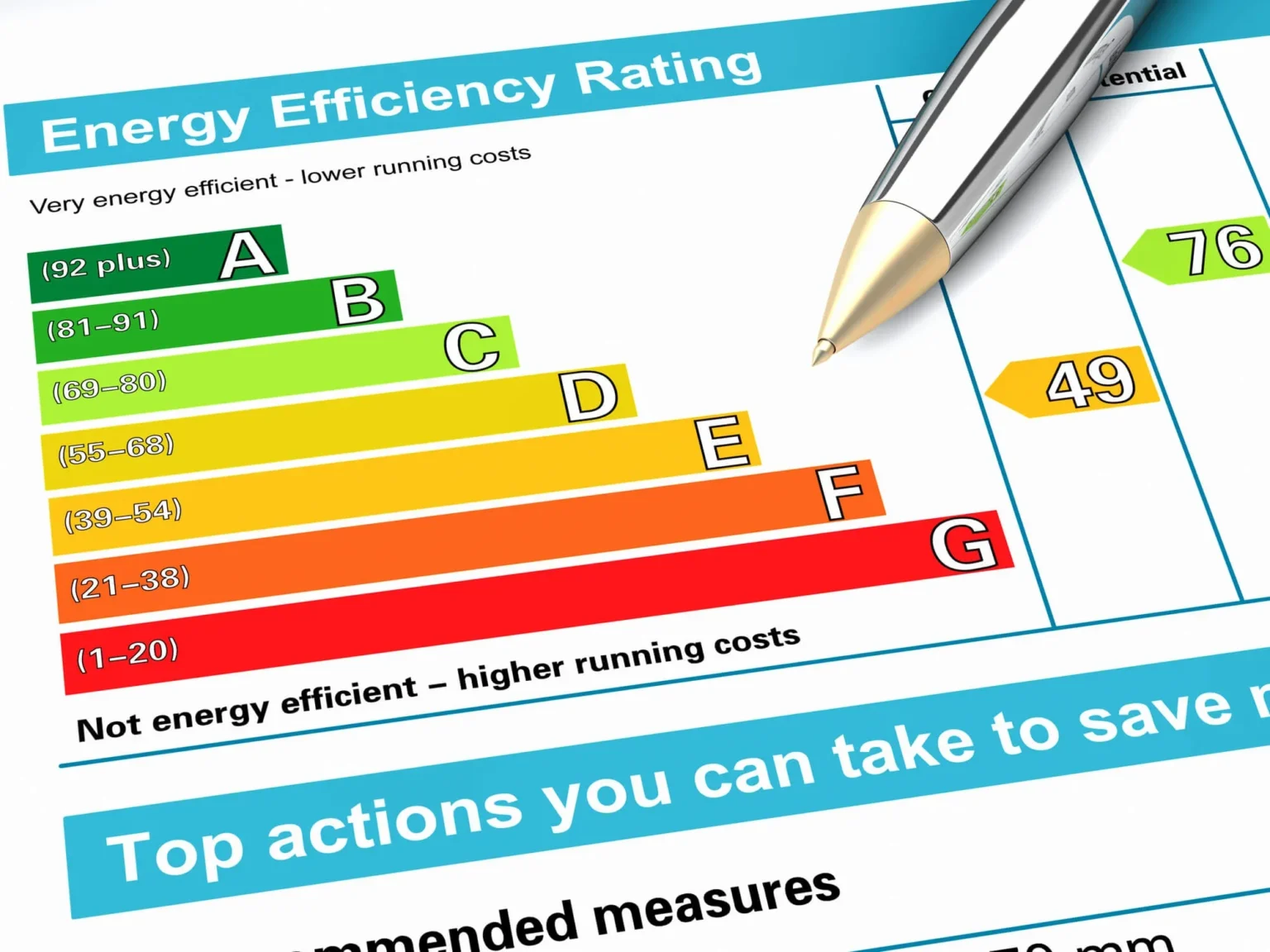Energy efficiency isn’t just a buzzword anymore—it’s a business essential. Whether you own an office, lease a shop, or manage an industrial site, there’s one document you’ll likely need: a Commercial EPC Certificate. Without it, you risk losing clients, breaking the law, or facing fines that hurt your bottom line.
This guide covers everything you need to know—without fluff. We’ll break down what a Commercial EPC is, who needs it, how to get it, and what it actually means for your building and business.
What Is a Commercial EPC Certificate?
A Commercial Energy Performance Certificate (EPC) shows how energy-efficient a non-domestic building is. It rates properties from A (most efficient) to G (least efficient), based on how much energy the building uses per square meter.
It’s a legal requirement in the UK whenever a commercial property is:
- Built
- Sold
- Rented
This certificate is different from a domestic EPC. It’s tailored for offices, retail units, warehouses, factories, and other commercial buildings.
Who Needs a Commercial EPC Certificate?
In short—anyone involved in buying, selling, renting, or constructing a commercial property in the UK.
This includes:
- Commercial landlords
- Property developers
- Business owners leasing space
- Estate agents and letting agents
If your building is heated and has a roof and walls, you’ll probably need a certificate.
Exemptions:
Not every building requires one. Exceptions include:
- Places of worship
- Temporary buildings (used less than 2 years)
- Industrial sites without HVAC systems
- Detached buildings under 50m² not used by the public
Why Is a Commercial EPC Certificate Important?
Let’s get to the point. Here’s why it matters:
- It’s the law. You can’t legally market or lease a commercial property without one.
- It influences tenant and buyer decisions. Businesses want energy-efficient spaces to reduce costs.
- It affects your property value. Better ratings can increase market appeal.
- It avoids fines. Failing to provide a valid EPC can result in penalties up to £5,000.
It’s not just a formality—it’s part of your building’s reputation.
What’s Included in a Commercial EPC?
When an accredited assessor evaluates your building, they’ll look at:
- Building age, layout, and usage
- Type of heating, ventilation, and cooling systems
- Lighting systems
- Insulation and glazing
- Hot water systems
From there, the building gets an Energy Efficiency Rating and a Recommendations Report that outlines cost-effective ways to boost performance.
How Long Does a Commercial EPC Certificate Last?
Just like a domestic EPC, a commercial certificate is valid for 10 years. However, it becomes void if significant modifications are made to the property’s energy systems.
You’ll need a new one if:
- The HVAC system is upgraded
- Structural extensions are added
- Insulation is improved significantly
How to Get a Commercial EPC Certificate
Here’s how to get it done the right way:
1. Find an Accredited Non-Domestic Energy Assessor
Only trained, certified assessors can issue a commercial EPC. Check for accreditations with organizations like CIBSE, Stroma, or Elmhurst.
2. Provide Access to the Property
The assessor will need to inspect the entire building, including plant rooms, rooftops, and meter cupboards.
3. Wait for the Report
It usually takes 1–3 working days to receive your certificate after the site visit.
4. Register Your EPC
Your assessor will register the certificate with the official UK EPC Register, where it will be publicly accessible.
You can also get your Commercial EPC Certificate booked online through trusted services like Nationwide Surveyors. They offer transparent pricing, quick turnaround, and nationwide coverage.
Cost of a Commercial EPC Certificate
Prices vary widely based on building size, complexity, and location. Here’s a rough guide:
- Small retail unit: £150–£250
- Medium-sized office: £300–£600
- Large industrial building: £800–£2000+
While the cost might seem high, non-compliance penalties or missed opportunities from a poor rating can be more expensive.
How to Prepare for a Commercial EPC Assessment
Before the assessment, gather this info to speed things up:
- Building layout/floor plans
- Records of heating and cooling systems
- Lighting types and controls
- Building maintenance records
- Access to all spaces (including locked or high areas)
The more data you provide, the more accurate (and potentially better) your rating will be.
What Does the EPC Rating Mean?
Here’s how to interpret the score:
| Rating | Efficiency | Color Code |
| A | Excellent | Green |
| B | Very Good | Light Green |
| C | Good | Yellow |
| D | Average | Orange |
| E | Poor | Red-Orange |
| F | Very Poor | Red |
| G | Worst | Dark Red |
A rating of E or higher is usually the minimum requirement for rental purposes.
Can I Improve My Commercial EPC Rating?
Yes—and you should.
Practical ways to improve include:
- Upgrading lighting to LED
- Installing modern HVAC systems
- Improving insulation
- Adding renewable energy sources (solar panels)
- Using smart meters and controls
These changes not only improve your rating but reduce your energy bills too.
What Is a MEES Regulation?
MEES (Minimum Energy Efficiency Standards) regulation requires commercial properties in England and Wales to have a rating of E or above to be rented.
From April 2023:
- It’s illegal to continue leasing properties with an EPC rating below E.
- You must improve the building before signing new leases or renewing existing ones.
So, the Commercial EPC Certificate is not just informative—it can affect lease legality.
Common Mistakes to Avoid
- Delaying the assessment until the last minute
- Using unaccredited assessors—invalidates the report
- Ignoring the recommendations—missed chances to improve energy and value
- Not updating the EPC after renovations or system upgrades
Stay ahead of these and you’ll save time, money, and stress.
Quick Recap: Key Facts About Commercial EPC Certificates
- Mandatory for all commercial property sales, leases, and new builds
- Valid for 10 years
- Assessed by accredited professionals only
- Includes an energy rating and improvement suggestions
- Required to comply with MEES regulations
- EPCs can be ordered quickly online
Final Thoughts
A Commercial EPC Certificate isn’t just another piece of compliance paperwork—it’s a valuable snapshot of your building’s performance and a guide to improvement.
It tells prospective tenants or buyers what to expect, helps you avoid legal penalties, and supports sustainability goals.
With simple online booking options and assessors available across the UK, there’s really no excuse to put it off.
If you haven’t checked your building’s EPC status yet, this is your sign to take action.
Because efficiency isn’t just good for the planet—it’s good for business too.
Want more insights? Keep visiting Lotology for the latest updates and information!

